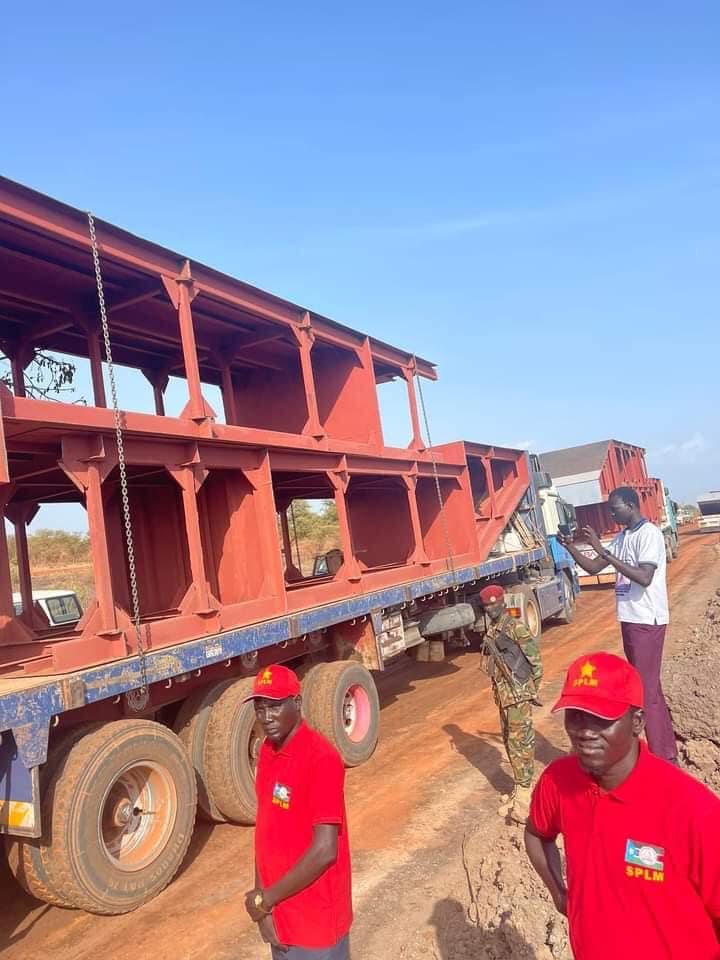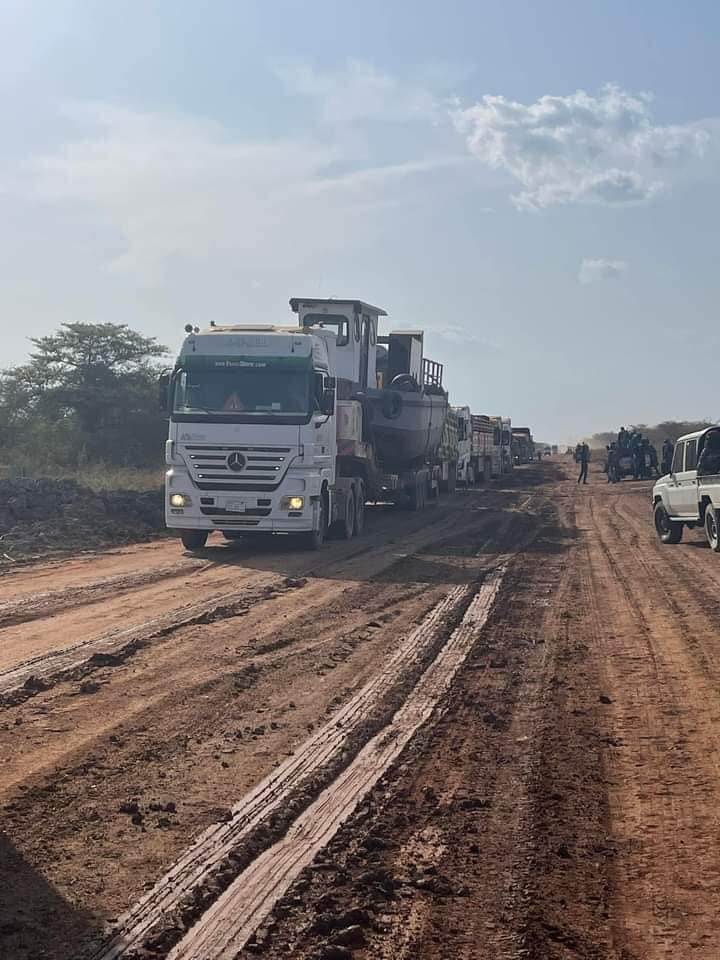The Resumption of Jonglei Canal Project: A Catastrophe for Current and Future Generations of South Sudan

By Ariik Kuol Ariik Mawien, Juba, South Sudan
Saturday, 04 June 2022 (PW) — The Jonglei Canal Project was one of the main issues that triggered the Second Sudanese Civil War between North and South in 1983. A deal was reached by Khartoum and Cairo to dig a large canal known as the Jonglei Canal on the River Nile to supply Egypt with abundant water for domestic use. The Southern Sudan led movement SPLM/A objected to such a project and disrupted it militarily. The project died out until the Comprehensive Peace Agreement (CPA) was signed on January 09, 2005, paving the way for the formation of the New Republic of South Sudan on Saturday, July 09, 2011.
Why Jonglei Canal was Objected?
The Southern Sudanese by then had no government and were well aware that, Jonglei Canal was suicide for our people, animals, and larger biodiversity. It was one of the tools used by Khartoum against Southerners to impose serious human catastrophe and famine. It was a project that guaranteed Egypt 95% control over the Nile water. Currently, there are more than ten (equal to 12) countries in Africa that are stakeholders in the Nile water. These countries are called “The Nile Basin Countries”, including Egypt, Ethiopia, Eritrea, Sudan, South Sudan, Tanzania, Kenya, Uganda, D.R. Congo, Rwanda, Burundi, and Chad. The geographical size of these countries, combined together, is equal to 3,349,000 km2 or (1,293,000 square miles). The length of the Nile is 6,695 km (4,130 miles) long, from Lake Victory in Uganda to Aswan in Egypt, making it the longest river in the world.



The Sharing Agreements of the Nile Water 1929-2010.
There are four water-sharing agreements (WSA) governing the use of Nile water as hereunder.
- The Nile Waters Agreement (NWA). This Agreement was signed on May 9th, 1929, between British Colonial Masters on the Use of Nile Water by Egypt for Development. This Agreement is also known as “The Egyptian Gazette” and was signed between Lord Lloyd, the British High Commissioner, and Muhammed Mahmoud Pasha, the President of the Egyptian Council of Ministers. The Agreement recognizes on one hand that, Sudan needs more water from the Nile and on the other hand, gave Egypt the Historical Rights over the Nile Water.
- Egypt-Sudan Agreement on the Nile Waters (ANW). The Sudan and Egypt signed an Agreement on the full utilization of the Nile Water by Egypt in 1959. The agreement determined that 84 billion cubic meters of the Nile water measured should be flowing to the Aswan High Dam in Egypt regularly. That was the quantity and average annual flow of the Nile water agreed by Sudan and Egypt in 1959.
- The Nile Basin Initiative (NBI). This Agreement was signed on February 22nd, 1999 by the Ministers of Water Affairs of the ten (10) countries that include: Egypt, Sudan, Ethiopia, Uganda, Kenya, Tanzania, Burundi, Rwanda, and the Democratic Republic of Congo (DRC) and Eritrea. The objective was to achieve sustainable socio-economic development through the equitable utilisation of the common Nile Basin water resources.
- Cooperative Framework Agreement (CFA). This Agreement was signed on May 10, 2010, by the five (05) upstream countries to seek more water from the River Nile. Although Sudan and Egypt strongly opposed the move and abstain from signing the CFA, Five (05) Countries includes: Ethiopia, Kenya, Uganda, Rwanda, and Tanzania signed the CFA, with Burundi signing the CFA a year later, in February 2011, topping the list of six (06) countries. The upstream countries who signed the CFA cited that, they were “tired of first getting permission from Egypt before using River Nile water for any development project like “irrigation,” as required by a treaty signed during the colonial era between Egypt and Britain in 1929.
Disputes over the Nile Water, the case of Egypt and Ethiopia.
The Grand Ethiopian Renaissance Dam Project (GERDP). On April 02, 2011, Meles Zenawi, the Ethiopian Prime Minister at the time, laid the foundation for the construction of the Grand Ethiopia Renaissance Dam. The dam is located on the Blue Nile, in the Benishangul-Gumuz Region of the country. Following the news of GERDP, the Egyptian authorities in Cairo immediately began to accuse Ethiopia of violating Egypt’s water needs. Therefore, Egyptian President, Mohamed Morsi, angrily stated that while he was not “calling for war” with Ethiopia, “Egypt’s water security cannot be violated at all,” thus, “all options are open,” and that Egyptians would not accept any projects on the Nile River that threatened their livelihood. In March 2015, Ethiopia and Egypt reached a deadlock on the construction of the Ethiopian Renaissance Dam on the Blue Nile, with Sudan playing an intermediary role between them, calling colonial agreements on Nile water “unsustainable”. Ethiopia took the decision to complete the construction of GERDP and fill it before an internal war erupted between the Federal government and Tigray Region on November 3rd, 2020.
Reactions of Nile Basin Countries against 1929 and 1959 Water Agreements for Egypt.
The twelve (12) Riparian States of the River Nile include Egypt, Ethiopia, Eritrea, Sudan, South Sudan, Tanzania, Kenya, Uganda, D.R. Congo, Rwanda, Burundi, and Chad. Egypt, Sudan, and South Sudan are the downstream Riparian States. South Sudan, however, has repeatedly indicated that it does not recognize the 1959 bilateral agreement between Egypt and Sudan. The nine (09) Upstream Nile Basin Member States, also the primary signatories of CFA, said, “They were tired of first getting permission from Egypt before using River Nile water for any development project like irrigation,” as required by a treaty signed during the colonial era between Egypt and Britain in 1929.
Conclusion,
Therefore, the Nile signifies life to every Member State as the water needed for domestic use, development, transport, wildlife and other socio-economic activities directly depends on it. As South Sudanese people, we are not in a position to deprive citizens of any country’s rights to water access on the Nile, nor citizens of other countries rights to use the water of the Nile. About 85% of the South Sudanese population are pastoralists, depending on small scale Agricultural schemes and livestock. In my own view, the resumption of the Jonglei Canal Project would mean the slaughtering of our civil populations. We urge our government to listen to the voices of its citizens that are widely condemned and oppose the construction of the Jonglei Canal Project.
We cordially advise the concerned authorities, especially, His Excellency, the President, Salva Kiir Mayardit, to revisit the plan and distance themselves from effecting this project in an effort to protect the lives of millions of people and ensure environmental safety and greater biodiversity. If authorities fail to acknowledge the views and opinions of the South Sudanese citizens and decide to continue with the project, that would be very harmful to our seasonal rivers and Sud swarms as they will permanently dry up and degrade. If the current generation is not, then, the next coming generations are going to be water conscious. The quotation is from Dr John Garang de Mabior. “After we are done with this war and achieve the hard-won independence, many of you will use pangas to cut the large pieces of land that are worth millions of dollars and sell it cheaply for a piece of bread and a bottle of beer.”
The Author, Ariik Kuol Ariik Mawien, holds a Post Graduate Diploma in Rural Development and Community Studies (2018/2019) and a Bachelor’s Degree of Science in Economics (2013-2017) from Rumbek University of Science and Technology (RUST). He works as a journalist and an opinion writer on many occasions. He works in accordance with National and Media Authority Laws, Rules, and Regulations throughout his Service. He observes standards of journalism with a high degree of neutrality, impartiality, integrity, professionalism, and balanced information. He can be reached via the contact below: E-mail: ariikkuolariik@gmail.com; Twitter: @AriikKuolAriik; Skype/WhatsApp: +211 (0) 923 650 380; Cell Phone:+211 (0) 928 187 790.
If you want to submit an opinion article, commentary, or news analysis, please email it to the editor: info@paanluelwel.com or paanluel2011@gmail.com. PaanLuel Wël Media (PW) website does reserve the right to edit or reject material before publication. Please include your full name, a short biography, email address, city, and the country you are writing from.




